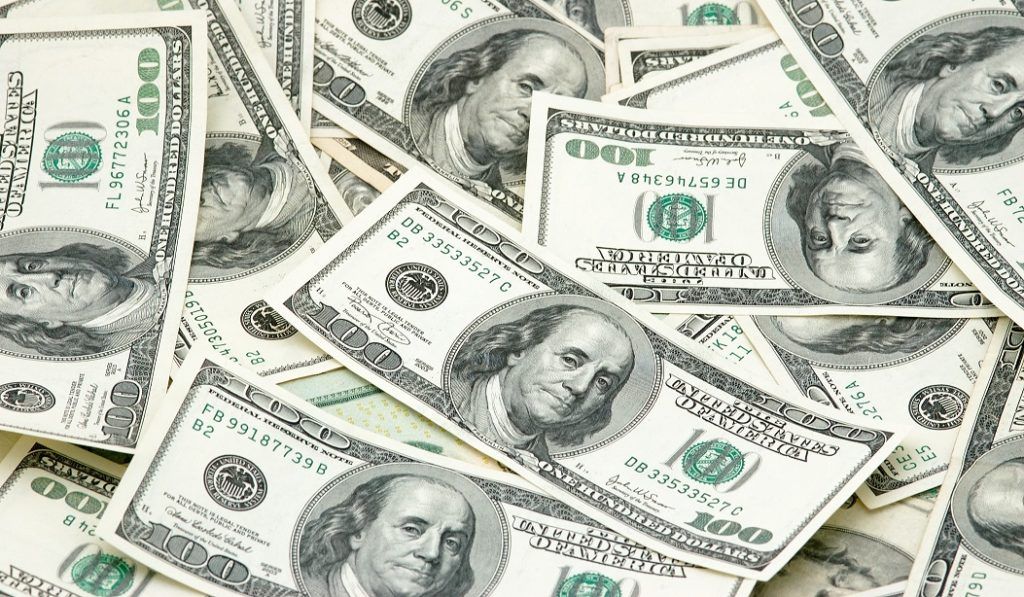Money BetterThisWorld: How Finance Shapes a Brighter Tomorrow

Introduction: What Does Money BetterThisWorld Really Mean?
When people hear the phrase Money BetterThisWorld it might sound like just another catchy slogan, but it carries a deeper meaning. It’s about looking at money not as a root of problems, but as a powerful tool to create positive change in society. Money in itself is neutral—it’s neither good nor bad. What matters is how people use it. When channeled into the right causes, money has the potential to uplift communities, drive innovation, and build a sustainable future.
At its core, the idea of Money BetterThisWorld is simple: if wealth is used wisely, it can bridge gaps, empower individuals, and bring hope to places where it’s most needed. Think about how donations fund education for underprivileged children, or how investments in renewable energy make the world cleaner for future generations. These examples show us that money isn’t just about personal gain—it can be an instrument of global progress.
This concept is more relevant now than ever. In today’s fast-paced world, wealth creation is easier than in previous decades, but the gap between the rich and the poor is also growing. Money BetterThisWorld encourages us to rethink our relationship with money, focusing on how it can be managed to reduce inequality, promote fairness, and ensure shared prosperity.
The Traditional View of Money vs. The Modern Shift

For centuries, Money BetterThisWorld has been seen as a symbol of power, control, and survival. Historically, wealth accumulation meant having influence and status. In fact, wars were fought, territories were conquered, and entire nations rose and fell based on financial control. This older view of money revolved heavily around personal success rather than collective well-being.
However, modern times have shown us a different perspective. While Money BetterThisWorld still brings status and comfort, many people now measure true success by how their financial choices impact others. For example, businesses are increasingly evaluated not only on profit but also on their contributions to environmental and social responsibility. People want to see companies and individuals use their resources in ways that benefit communities, not just bank accounts.
This shift reflects a larger societal awareness. Millennials and Gen Z, in particular, are leading the charge toward ethical spending and investing. They want their money to fund projects that fight climate change, improve education, and support equality. Instead of hoarding wealth, the trend is moving toward redistributing it in ways that align with humanity’s biggest challenges. That’s exactly where Money BetterThisWorld fits in—it symbolizes this change of perspective from greed-driven accumulation to purposeful investment.
Money BetterThisWorld as a Tool for Social Good
One of the most important aspects of Money BetterThisWorld is the idea of money as a tool for social good. Unlike material possessions, money is fluid—it moves from one hand to another and creates ripples wherever it goes. When invested wisely, those ripples turn into waves of progress.
Take philanthropy as an example. Billionaires like Bill Gates and Warren Buffet have dedicated large portions of their fortunes to health, education, and poverty alleviation. Their donations have saved millions of lives and sparked research into diseases that once had little funding. While critics often argue about the ethics of extreme wealth, it’s undeniable that when directed toward the right causes, large sums of Money BetterThisWorld can spark monumental change.
It doesn’t take billions to make a difference, though. Everyday people can participate in this movement. Supporting local businesses, donating to community projects, or even funding a friend’s creative endeavor are all ways of letting Money BetterThisWorld flow in ways that strengthen society. The principle remains the same: it’s not the amount, but the intention behind the money, that determines whether it truly “betters this world.
The Power of Ethical Investing
Investing has always been about multiplying wealth, but in today’s climate-conscious and socially aware world, investing has taken on a new meaning. Ethical or sustainable investing focuses not only on profits but also on the positive impact companies make on the environment and society. This is one of the clearest demonstrations of Money BetterThisWorld.
For instance, people are moving away from industries that harm the planet, such as fossil fuels or tobacco, and choosing to put their Money BetterThisWorld into clean energy, healthcare, and education. This isn’t just a moral decision—it’s also a smart financial strategy. Companies that prioritize sustainability often perform better in the long run because they adapt to changing global demands.
The ripple effect of ethical investing is enormous. By funding businesses that care about the planet and its people, investors encourage others to follow suit. This creates a chain reaction where companies are pressured to adopt sustainable practices or risk being left behind. Through investing, Money BetterThisWorld becomes more than a personal gain—it transforms into a collective force that guides industries toward a better future.
Money and Education: Breaking Cycles of Poverty
Education is one of the most powerful ways money can be used to make the world better. Unfortunately, millions of children still lack access to quality schooling due to financial barriers. This is where the principle of Money BetterThisWorld truly shines—by directing funds into education, entire generations can be lifted out of poverty.
Consider scholarships, donations to schools, or investments in digital learning platforms. These financial moves open doors for students who might otherwise never have had the chance to pursue their dreams. Education creates a ripple effect: a well-educated child grows into an empowered adult who contributes positively to society, pays taxes, and possibly gives back to their community.
Additionally, technology has allowed us to stretch the value of Money BetterThisWorld in education. With online platforms, one donation can now reach thousands of students worldwide, providing access to resources and knowledge that were previously limited by geography. Here, money doesn’t just buy books—it builds futures.
Money and Technology: Shaping Tomorrow’s Innovations
The digital age has shown us how powerful Money BetterThisWorld can be when directed toward technology. Innovations like artificial intelligence, renewable energy solutions, and medical advancements are possible because of strategic investments. Without funding, even the brightest ideas remain stuck on paper.
Startups around the world are proof of this. With venture capital funding, small teams of innovators can develop life-changing solutions. Whether it’s apps that improve mental health, machines that clean oceans, or tools that make agriculture more sustainable, these projects demonstrate how Money BetterThisWorld fuels creativity and change.
Money BetterThisWorld highlights this relationship perfectly. When investors back projects that aim to solve global challenges, they’re not just supporting businesses—they’re supporting humanity. The result is a world where technology works hand-in-hand with ethical finance to create opportunities that didn’t exist before.
Personal Finance with Purpose
When people think about making a difference, they often assume it requires huge sums of money. The truth is, even small financial decisions on a personal level can contribute to making the world better. That’s why personal finance with purpose is such an important part of the Money BetterThisWorld philosophy.
Consider the simple act of mindful spending. Choosing to buy from ethical brands, supporting local farmers, or avoiding fast fashion are financial choices that have long-term global impacts. Each purchase becomes a statement of values, proving that even small amounts of Money BetterThisWorld can collectively shift industries.
On top of that, budgeting and saving responsibly allow individuals to create stability in their lives. A financially secure person is more likely to give back to their community, volunteer time, or donate to causes. In this way, personal finance is not just about self-improvement—it becomes part of a larger cycle of contribution.
Challenges to Making Money Truly Better the World
Of course, the vision of Money BetterThisWorld isn’t without challenges. One major issue is inequality. While some individuals and corporations use money to make a difference, others hoard it or misuse it in ways that worsen global problems. Corruption, greed, and mismanagement can derail even the best intentions.
Another challenge is skepticism. Many people doubt whether their small contributions actually matter. With so many global issues, it’s easy to feel powerless. However, history has shown that collective action, even from individuals with limited means, creates meaningful change. The key is to stay committed and consistent, rather than expecting immediate, large-scale results.
Finally, the lack of financial literacy is a barrier. Too many people simply don’t know how to manage or grow their Money BetterThisWorld effectively. Without education on financial tools, opportunities, and strategies, it’s hard for individuals to leverage their resources in impactful ways. This is why spreading knowledge about purposeful finance is as important as spreading the money itself.
Conclusion: The Future of Money BetterThisWorld
At the end of the day, money will always play a central role in shaping society. The difference lies in how it’s used. The concept of Money BetterThisWorld is more than just a phrase—it’s a call to action. It asks us to view money as a resource for good, not just a measure of wealth.
Whether it’s through philanthropy, ethical investing, supporting education, or simply making conscious consumer choices, each financial decision has the potential to create ripples of positive change. The future of our world depends on how well we understand and practice this philosophy.
If more individuals, businesses, and governments commit to using money for collective progress, the dream of a fairer, healthier, and more sustainable world isn’t far-fetched—it’s achievable. Money BetterThisWorld is not just about having wealth; it’s about making wealth work for everyone.



